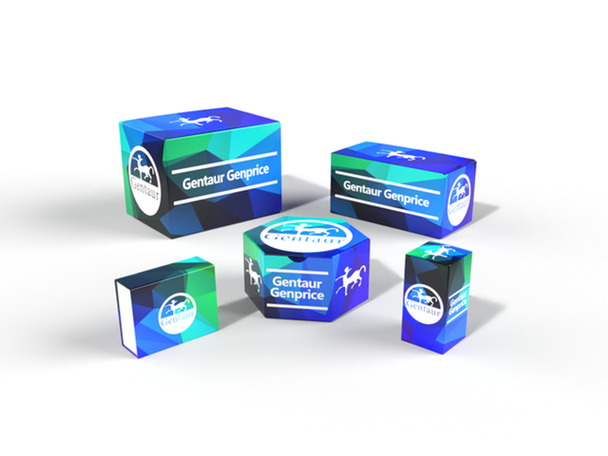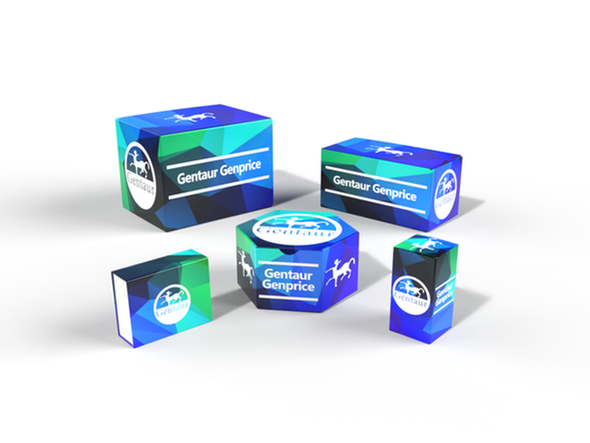Description
TLR7 Antibody | 3269 | Gentaur UK, US & Europe Distribution
Host: Rabbit
Reactivity: Human, Mouse
Homology: N/A
Immunogen: TLR7 antibody was raised against a peptide corresponding to 14 amino acids near the center of mouse TLR7.
The immunogen is located within amino acids 420 - 470 of TLR7.
Research Area: Innate Immunity
Tested Application: E, WB, ICC
Application: TLR7 antibody can be used for detection of TLR7 by Western blot at 0.5 to 2 μg/mL. Antibody can also be used for immunocytochemistry starting at 2 μg/mL.
Antibody validated: Western Blot in human samples and Immunocytochemistry in human samples. All other applications and species not yet tested.
Specificiy: N/A
Positive Control 1: Cat. No. 1224 - Daudi Cell Lysate
Positive Control 2: N/A
Positive Control 3: N/A
Positive Control 4: N/A
Positive Control 5: N/A
Positive Control 6: N/A
Molecular Weight: Predicted: 116 kDa
Observed: 135 kDa
Validation: N/A
Isoform: N/A
Purification: TLR7 Antibody is affinity chromatography purified via peptide column.
Clonality: Polyclonal
Clone: N/A
Isotype: IgG
Conjugate: Unconjugated
Physical State: Liquid
Buffer: TLR7 Antibody is supplied in PBS containing 0.02% sodium azide.
Concentration: 1 mg/mL
Storage Condition: TLR7 antibody can be stored at 4˚C for three months and -20˚C, stable for up to one year. As with all antibodies care should be taken to avoid repeated freeze thaw cycles. Antibodies should not be exposed to prolonged high temperatures.
Alternate Name: TLR7 Antibody: Toll-like receptor 7
User Note: Optimal dilutions for each application to be determined by the researcher.
BACKGROUND: TLR7 Antibody: Toll-like receptors (TLRs) are signaling molecules that recognize different microbial products during infection and serve as an important link between the innate and adaptive immune responses. These proteins act through adaptor molecules such as MyD88 and TIRAP to activate various kinases and transcription factors. TLR7, like TLRs 3, 8, and 9, is localized in intracellular acidic compartments such as the phagolysosome and will recognize some single-stranded RNA viruses such as vesicular stomatitis virus (VSV) and influenza virus. Activation of TLR7 by VSV results in stimulation of the immune response including IFNalpha secretion, suggesting the importance of TLR7 in virus recognition.










